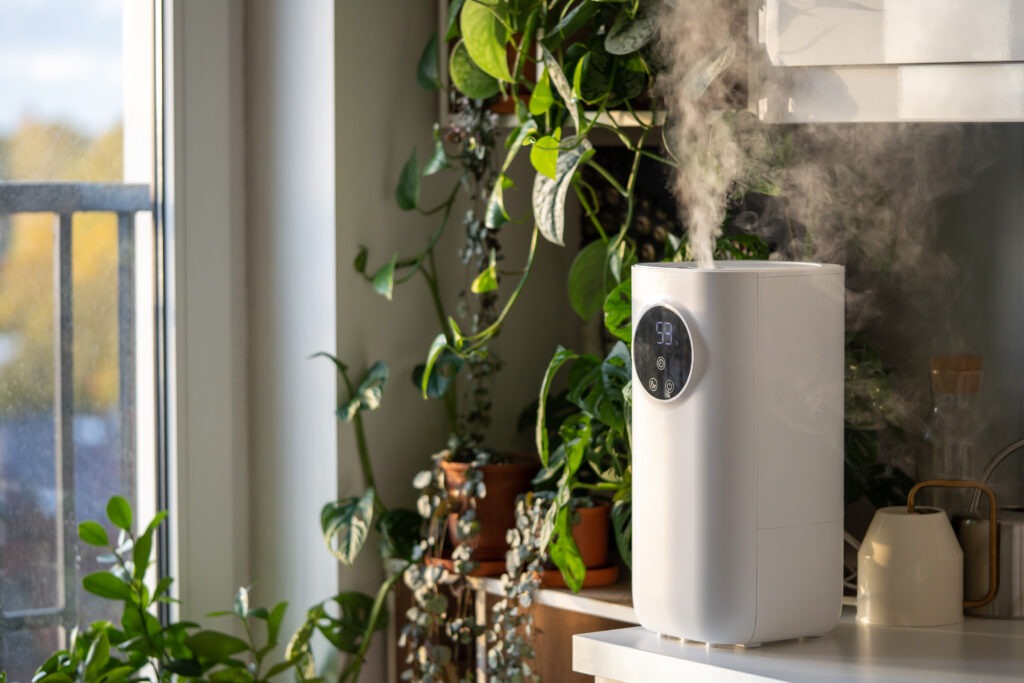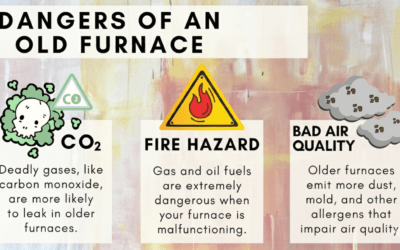How Indoor Air Quality Impacts Your Health and Comfort

Indoor air quality is often overlooked, but it plays a central role in how we feel, perform, and recover each day. The air inside your home, workplace, or school can contain pollutants such as dust, mold spores, pet dander, volatile organic compounds (VOCs), and even outdoor contaminants that infiltrate the space. Poor indoor air quality doesn’t just impact people with allergies or asthma—it affects everyone by influencing energy levels, sleep quality, concentration, and long-term health. Since most people spend up to 90% of their time indoors, making air quality a priority is essential for a healthier and more comfortable life.
How Indoor Air Quality Influences Respiratory Health
Breathing clean air is fundamental to respiratory health. Poor indoor air quality can lead to frequent coughing, wheezing, or shortness of breath. Dust mites, pollen, smoke, and mold particles are common irritants that trigger these reactions. Long-term exposure can worsen asthma, increase the likelihood of developing bronchitis, or heighten susceptibility to infections.
Allergies
Allergens like pet dander or mold spores are intensified when ventilation is poor, making allergic reactions more severe indoors than outdoors. Many people find that their symptoms flare up during extended indoor stays because particles remain trapped in closed spaces.
Asthma
For those living with asthma, even minor air pollutants can trigger dangerous flare-ups. Improving air circulation, reducing humidity, and using high-quality filtration systems can make a noticeable difference in preventing attacks.
Improve Sleep and Comfort With Better Indoor Air Quality
When indoor air quality is compromised, restful sleep becomes harder to achieve. Pollutants like VOCs or carbon dioxide buildup can disrupt breathing patterns, leading to shallow sleep or frequent waking. Even mild irritants, such as dust or dry air, can contribute to snoring, congestion, or nighttime coughing. Poor sleep not only reduces comfort but also affects mood, productivity, and overall health. By ensuring that your bedroom air is clean, adequately ventilated, and at a balanced humidity level, you can drastically improve your nightly rest and comfort.
Indoor Air Quality and Its Role in Mental and Cognitive Health
Breathing clean air affects how clearly you think and how well you feel emotionally. Poor indoor air quality has been linked to reduced concentration, brain fog, and headaches. Research suggests that high levels of carbon dioxide or VOCs can impair decision-making and memory recall.
Work Productivity
In offices, classrooms, and home workspaces, the quality of the air can influence energy levels, focus, and efficiency. Workers exposed to fresher, cleaner air often report higher productivity, better problem-solving abilities, and less fatigue throughout the day.
Emotional Well-Being
There is also a connection between air quality and mood. Polluted or stuffy environments can increase stress, irritability, and anxiety. On the other hand, environments with clean, fresh airflow can support a calmer state of mind.
Indoor Air Quality and Long-Term Health Concerns
Don’t underestimate the long-term impact of poor indoor air quality. Prolonged exposure to airborne pollutants can increase the risk of cardiovascular disease, certain types of cancer, and chronic respiratory conditions. For children and elderly individuals, the risks are even greater, as their immune systems may be less equipped to filter and process harmful particles.
Chemicals
Household products, cleaning agents, and building materials often release VOCs such as formaldehyde and benzene, which can accumulate over time. Exposure to these chemicals is associated with long-term health complications if not addressed through ventilation and filtration.
Mold
Moisture-prone areas, such as bathrooms or basements, can harbor mold growth, which releases spores into the air. Long-term exposure to mold spores can lead to chronic sinus infections, lung irritation, and other systemic issues.
The Importance of Ventilation to Improve Indoor Air Quality
One of the most effective ways to improve indoor air quality is through proper ventilation. Modern airtight homes, while energy-efficient, often trap pollutants inside. Without fresh airflow, contaminants accumulate, making the air stale and unhealthy.
Mechanical Systems
HVAC systems with advanced filters, heat recovery ventilators, or energy recovery ventilators help ensure that air is circulated and refreshed while maintaining energy efficiency. Regular maintenance and filter changes are vital for these systems to work effectively.
Natural Ventilation
Opening windows, using exhaust fans, and allowing cross-breezes also support cleaner air. While this may not always be practical in areas with high outdoor pollution, even brief periods of ventilation can significantly improve indoor air quality.
Humidity’s Role In Indoor Air Quality
Humidity plays a crucial role in indoor air quality. When indoor spaces are too dry, they can cause throat irritation, dry skin, and the buildup of static electricity. On the other hand, excessive humidity creates an environment that allows mold, dust mites, and bacteria to thrive.
Maintaining a balanced humidity level between 30% and 50% is ideal. Dehumidifiers, humidifiers, and proper ventilation help maintain this balance, preventing discomfort while also controlling harmful microorganisms.
How Indoor Air Quality Influences Everyday Comfort
Beyond health, indoor air quality has a direct effect on comfort. Fresh, clean air feels better to breathe, improves temperature regulation, and reduces odors. Imagine the difference between sitting in a room with stale air versus one with good circulation and filtration—it impacts your sense of relaxation and energy.
Odor Control
Cooking, smoking, pets, and even cleaning products can leave strong odors in the air. When indoor air quality is managed correctly, these odors are reduced or eliminated, creating a more pleasant home or work environment.
Seasonal Changes
During different seasons, air quality challenges shift. Winter brings dry, heated air, while summer often leads to high humidity and pollen infiltration. Adapting your indoor air quality strategies to seasonal changes ensures year-round comfort.

How to Improve Indoor Air Quality in Practical Ways
Taking steps to improve indoor air quality doesn’t always require expensive upgrades. Simple changes can make a lasting difference in how healthy and comfortable your environment feels.
Cleaning Habits
Regular cleaning helps reduce dust, pet hair, and dander, which are significant contributors to poor air quality. Using vacuums with HEPA filters and dusting with damp cloths helps minimize the presence of airborne particles.
Plants
Certain indoor plants naturally filter toxins from the air; however, they should be used in moderation, as too many can increase humidity. Peace lilies, snake plants, and spider plants are among the best low-maintenance options.
Lifestyle Changes
Avoiding smoking indoors, limiting the use of harsh chemical cleaners, and ensuring proper ventilation during cooking are simple ways to improve the air you breathe daily.
Indoor Air Quality is a Foundation for Better Living
When indoor air quality is prioritized, the benefits extend far beyond health. Cleaner air contributes to a more restful sleep, sharper focus, fewer illnesses, and a more inviting living or working environment. It reduces stress on the immune system and helps protect long-term wellness. By addressing air quality through ventilation, filtration, cleaning, and humidity control, individuals create spaces that promote not only survival but also comfort and thriving.
Visit our Cooling and Heating Repair blog for additional tips on enhancing your indoor air quality.
Categories
- AC installation
- AC Installer
- AC Repair
- AC Repair/Heater Repair
- AC System Maintenance
- Air Conditioning Repair
- Air Conditioning Services
- Appliance Repair
- Furnace Repair
- Heater Repair
- Heater Repair Services
- Heating Services
- HVAC
- HVAC and Appliance Repair Services
- HVAC Installation
- HVAC Services
- Promotion
- Thermostat installation
- Uncategorized






